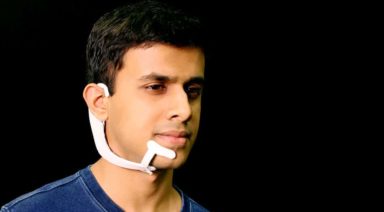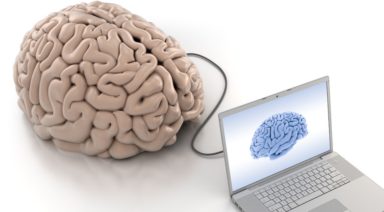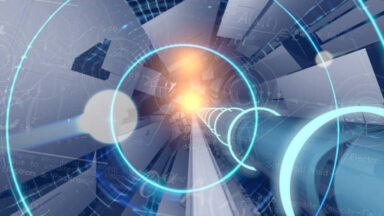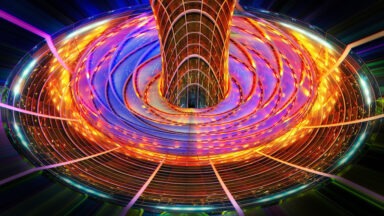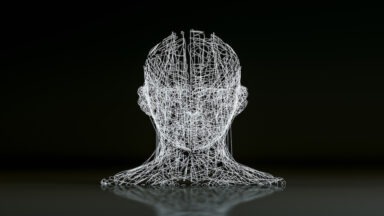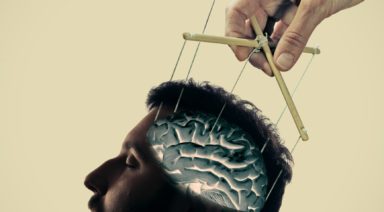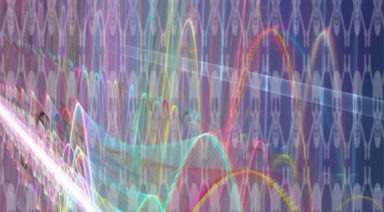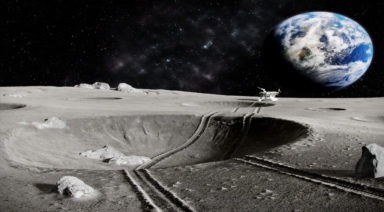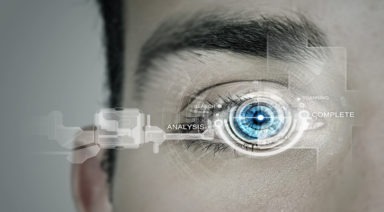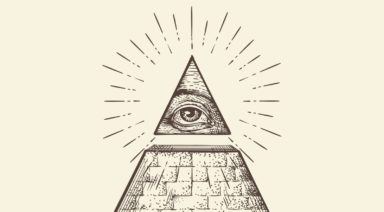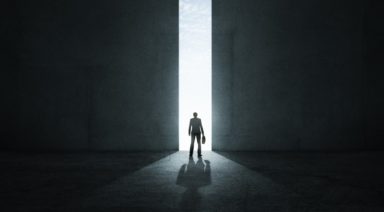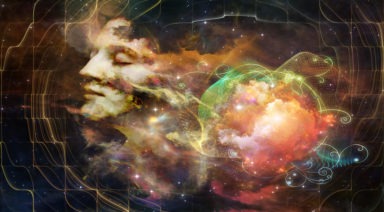If the Universe is a Simulation, Can We Hack It?
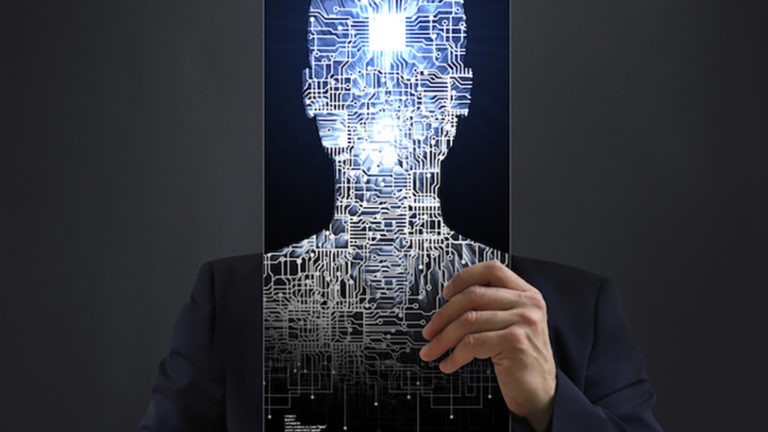
In 2003, Nick Bostrom published a paper proposing three scenarios he says he believes are likely to be true about our reality. One of those possibilities is that we are living in a computer simulation, a theory gaining increasing attention in our era of prevailing tech fascination. But if the universe is a simulation, can it be hacked?
Is the Universe a Computer Simulation?
We’ve heard from a number of scientists and thought leaders, including Elon Musk, it’s likely we’re living in a computer-simulated reality. Musk said he believes there’s a one-in-billions chance we’re living in “base reality,” or a non-simulated, completely organic existence.
It’s also becoming more apparent that mathematics is the language of nature — a universal dialectical that can be used to describe everything, from the inconceivably large to the infinitesimally small. As we continue to acquire more insight on this reality, it appears we may be living in what appears to be a physical construct that might actually be generated from code.
In an attempt to understand the fundamental laws of nature, theoretical physicist, Dr. James Gates, discovered a set of equations he says are indistinguishable from the computer code one might find powering their web browser. In his study of string theory, he also discovered an error-correcting code in supersymmetry equations used to describe how the universe works. This forced him to ask himself, “am I living in the Matrix?”
Gates said, upon his discovery, that he came to a profound existential quandary; “I have in my life come to a very strange place, because I never expected the movie The Matrix might be an accurate representation of the place in which I live.”
But this concept can also be thought of as a semantic argument bridging the gap between materialists identifying as atheists, and those with spiritual or religious beliefs in a creator. Could stories of saints and enlightened beings performing miracles, reincarnating, and transcending our reality also be construed as humans who figured out how to hack the simulation?
The concept of a computer-generated reality would require a creator or engineer behind the simulation, similar to what us mortals might call a god – but isn’t that essentially describing the same thing, just explained by the language of two different world views?
In fact, one of the comments pinned to the front page of Bostrom’s website reads, “the simulation argument is perhaps the first interesting argument for the existence of a creator in 2,000 years.” The comment comes from David Pearce, a thought leader in the decreasingly conceptual, and increasingly applied realm of transhumanism, a field of technology epitomizing the desire to hack our existence.
For many this leads to ethical questions of “playing god” and messing with nature. But could transhumanism prove to be an inevitable next step for us?
3 Ways to Hack our Simulated Reality
- Transhumanism – Transhumanism is about re-engineering our world and bodies to improve quality of life, lessen suffering, and increase happiness. David Pearce calls this the “Hedonistic Imperative,” or “paradise engineering.” Pearce foresees this as humans rewriting our genetic “source code,” so that life can be entirely based on “information-sensitive gradients of bliss.” And it seems this process is already underway with the CRIPSR/Cas9 gene editing tool. Pearce’s definition of engineering happiness sounds like the way Elon Musk has warned that artificial intelligence might approach our problem of happiness by seeking to influence chemical or molecular processes in our brain responsible for pleasure. Though, Musk painted a picture of this prospect in a more disturbing way, envisioning humans living an idle life with our dopamine and serotonin levels constantly stimulated. If this is starting to sound like the plot of Brave New World, stop reading now, because Pearce may be on the precipice of finding the soma. Just kidding – he’s already defended against that argument, and soma is far too weak and mind-numbing than what he aims to create – a comprehensive solution that promotes and stimulates consciousness rather than anaesthetizing it.Pearce says the hedonistic imperative is not a plea for blissing out, but rather “radical hedonic recalibration.” How radical? The complete abolishment of suffering, period. And not just human mental and physical suffering, Pearce calls for a global utopia in which all animals are free of suffering, whether caused by humans or nature. It’s probably no surprise that Pearce is a vegan.With transhumanism, gene editing is considered the future key to solving our physical, emotional and intellectual problems. While this is perhaps the most scientific approach of hacking the simulation, it also raises ethical concerns of theoretical designer babies and physical upgrades that only the wealthy can afford.
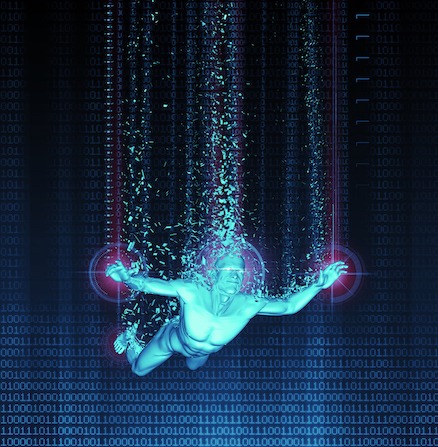
-
- Social Development – Our existence in this life is fleeting. As we get older, it seems that time becomes more ephemeral. Add to this the ubiquity of social media, constant communication, and digital connectivity, and our lives seem to be speeding up at an exponential rate. Before we know it, our lives will have passed in front of us while we were staring at a computer screen — a simulated reality in itself. When we look at how technological advances are affecting our lives and changing our behavior, we’re realizing just how intrinsic our day-to-day online habits are to our lives. Recently a former Facebook exec admitted he felt responsible for destroying the fabric of society through the platform’s dopamine-driven feedback loops that keep us addicted to the technology. These systems are designed to create echo chambers; promoting confirmation bias, in which we only hear ideologies and beliefs that confirm our own. Political, social, economic — all these belief systems are constantly being confirmed by news feeds and curated content based on what you like and who you agree with.We’re not getting the other side of the story, or the opposing views that are needed to connect with other humans and generate meaningful, healthy discourse. Unity, understanding, empathy — if we want to hack the simulation and advance to the next level, these are key factors we need to embrace in order to advance emotionally, physically, and intellectually.
- Meditation – Meditation is the simulation hacking method that has been used for centuries. The only way one can truly access consciousness directly is by going within through meditation. The goal of meditation in Vedic ideology is to eliminate Maya, the illusory ignorance of what we perceive as a reality where we see ourselves as finite beings, separate from the creator. Maya is not this illusory reality itself, but rather the thing that creates the illusion. Is Maya synonymous with our computer simulation? In Vedic teachings, those who devote their lives to meditation and realize this oneness can attain superpowers known as the “siddhis.” The siddhis are similar to powers Neo achieves when he wakes up from the Matrix, such as the ability to fly, manifest and control material things, to become invisible, and to be in more than one place at a time. Some of these superpowers, thought to be impossible by many, are starting to become theoretically plausible through discoveries in quantum physics. For example, the ability to manifest material things has been proven in a sense through the famous double-slit experiment which determined that light acts as a particle when we observe it, and as a wave when we don’t. This wave-particle duality essentially revealed that our consciousness affects the way light manifests. Quantum physics has also allowed for information to be teleported through quantum entanglement, a process once thought to be impossible. But for those of us unable to live the ascetic life, short, daily meditation is still a solid method of hacking the simulation in subtler ways. The physical, emotional, and intellectual benefits of meditation have been scientifically proven numerous times, all the way down to the molecular level. If affecting your cells with the power of your mind isn’t a simulation hack, then what is?
Bioresonance Therapy: A Scientific Anomaly or Magnetic Magic?

Pseudoscience involving quantum scanners? Bioresonance therapy should be banned in the US? Medical science on the warpath against this groundbreaking healing modality? Woash! Let’s all settle down!
Each of us is born from stardust and then infused with a soul and a specific signature comprised of electromagnetic vibrations. Given that we embody and emanate electric current, it stands to reason that electromagnetic or vibrational therapy would be of benefit for a long list of our physical diseases, emotional challenges, and other ailments.
Functioning in ways similar to how adjacent guitar strings affect each other’s tone, electromagnetic waves are proven to be useful in diagnosing and treating human illness.
While this effective modality might not be entirely curative in every category, many doctors, naturopaths, and patients have experienced Bioresonance to be a highly beneficial, complementary therapy.
Bioresonance therapy: does it work? You betcha.
“Our bodies … are electromagnetic machines. We simply can’t move a muscle or produce a thought without an electrical impulse – and wherever there is electricity, a magnetic field is also produced, which is why we link the two together into one word: electromagnetic.”― Ann Louise Gittleman




